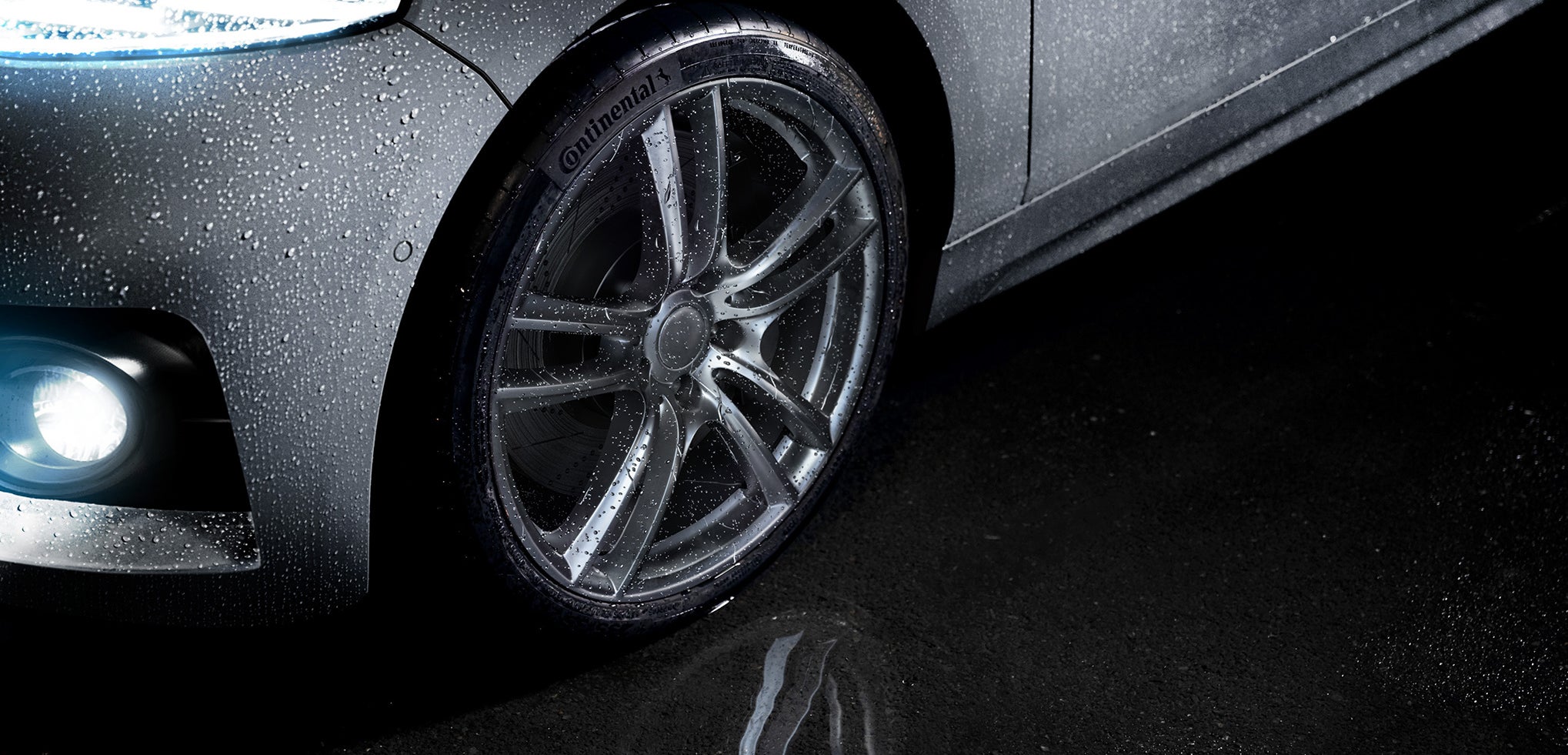
# Driving Situations
Driving in heavy rain
Tips for safe driving in heavy rain
When wet weather strikes, driving conditions can change. Driving in the rain is much more challenging than driving in fine weather. Follow these safety tips for driving in wet conditions.
Out driving during a downpour? Heavy rain makes it harder to see and more difficult to stop. There are other risks involved, too – like aquaplaning.
New tires, or tires that are well-maintained with optimal tread depth will contribute to a safer rainy-day driving experience. The rest is up to careful and conscientious driving.

Our top 3 rules for driving safely in heavy rain
Slow down. This is a no-brainer. Stay below the speed limit. The slower you’re going, the better control you’ll have over your vehicle – and the easier braking will be.

Keep your headlights on to increase your visibility and ensure your brake lights are functional. In many states, the use of headlights during rain is required by law. For optimal safety in the rain, turn yours on.

Keep more distance between yourself and other vehicles. Give other drivers more space. Double the distance between your vehicle and the one in front of you. Stopping distances are increased in wet conditions. This will also help you avoid spray from other (particularly larger) vehicles, which can inhibit visibility, too.

These top three rules are essential for safety in wet conditions. But that’s not all there is to know about driving in heavy rain. Read on for more tips to stay safe on wet and flooded roadways.
Beware the first rain shower
The first rain after a dry spell can make for some of the most dangerous driving conditions. Why? Rain mixes with oil and debris on the road, causing a particularly slick road surface. This can put you at higher risk of losing control.
Careful braking is key
In wet weather, your brakes are not going to respond as quickly as they would in dry conditions. Try to look as far ahead on the road as possible, and slow down by taking your foot off the gas – rather than hitting the brakes. Avoid using your brakes unless needed. Braking suddenly on a wet road can cause your car to skid.
No cruise control
Turn off your cruise control in the rain. You need to be completely in control of your car.
Related content
-
 2024/10/17AquaplaningAquaplaning is one of the most dangerous situations in road traffic. Learn what it is and how it can be avoided with sufficient tire tread depth.Read more
2024/10/17AquaplaningAquaplaning is one of the most dangerous situations in road traffic. Learn what it is and how it can be avoided with sufficient tire tread depth.Read more -
 2024/10/17Driving in snowWhen winter arrives, it's essential to take proper precautions for yourself and your vehicle. Here are some useful tips for safely driving in snow.Read more
2024/10/17Driving in snowWhen winter arrives, it's essential to take proper precautions for yourself and your vehicle. Here are some useful tips for safely driving in snow.Read more -
 2024/10/17Driving in fogIf possible, don't drive in foggy conditions. Fog is a major cause of road accidents. But if it can't be avoided, here are some safe driving tips.Read more
2024/10/17Driving in fogIf possible, don't drive in foggy conditions. Fog is a major cause of road accidents. But if it can't be avoided, here are some safe driving tips.Read more